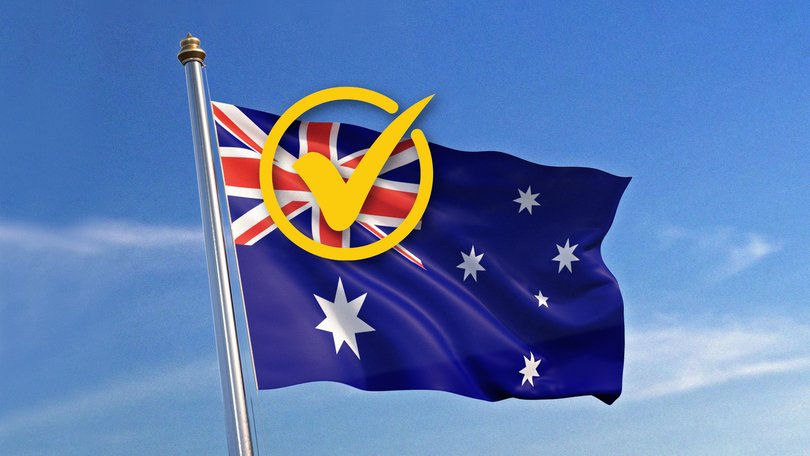AARON PATRICK: If we abandon the Australian flag, we give up who we are
AARON PATRICK: Senator Jacinta Price’s proposal to ban burning the flag was met by calls to replace the flag altogether. That would be a mistake.

Jacinta Nampijinpa Price kicked off a debate about the debasement of the Australian flag this week. The Northern Territory Senator wants to protect the flag from being destroyed in protest and to restore it to its central place as a national symbol.
Her proposal triggered calls for the Union Jack, Southern Cross and Federation Star to be replaced by a new design. Among the suggestions was a kangaroo’s silhouette emerging from a blue background onto yellow.
Among those endorsing a replacement was military historian and journalist Mike Carlton, who knows better than most the sacrifices made by Australians over generations to preserve the freedoms represented by the current flag.
Sign up to The Nightly's newsletters.
Get the first look at the digital newspaper, curated daily stories and breaking headlines delivered to your inbox.
By continuing you agree to our Terms and Privacy Policy.Australia is changing in many ways. Replacing the flag now would be a mistake, for it would inevitably discard the Union Jack, severing the most visible connection between Australia and the birthplace of the institutions and belief systems that made our nation one of the world’s great democracies.
Forgetting success
Great Britain, represented by the Union Jack, does not get a lot of positive PR in Australia these days. Australian nationalism is strong, as evidenced by a new-found intensity of Australian Day celebrations. But the origins of that success are being forgotten, permitting a lack of self-awareness that has put Australia on the path towards becoming another ambitionless Western state led by bland politicians overseeing bloated government and advocating for a national identity so vague as to be meaningless.
History shows Australia’s success was founded on a respect for the law and individuals’ rights inherited from Britain, the first parliamentary democracy. The continent’s colonisation was a tragedy for the original inhabitants, including Senator Price’s ancestors, but it gave the budding nation access to legal and commercial practices that remain the foundation of the economy, and scientific advances that made Australia, for a while, one of the richest nations on earth.
Speaking on National Flag Day on Wednesday, literally wrapped in the flag, Senator Price expressed her distaste at pro-Palestinian protesters who burnt the flag in Melbourne on August 3. The same day, some protestors chanted genocidal slogans, displayed Hamas symbols and nazi swastikas, waved flags of terrorist organisations and carried a photograph the the leader of Iran, Ayatollah Ali Khamenei, over the Sydney Harbour Bridge, another national symbol.
Told by Greens Senator Nick McKim to remove the flag from her shoulders, she’d replied: “You can wear a keffiyeh in here. Perhaps you should remove that article from you whenever you walk through the chambers for the benefit of all Australians in this country.”
Later she told Seven News: “It is the ultimate disrespect to our nation.”
Three flags
Australia was born without a flag. Now it has three. The first prime minister, Edmund Barton, launched a competition in April, 1901, to choose one to unite the six former colonies. Within 32 days, 32,000 entries were received. Five entrants submitted similar designs and shared in the 200-pound prize.
The design demonstrates how much the new country valued its connection to the British Empire. Today, the national flag is rarely flown on government land without the Aboriginal and Torres Strait Islander flags.
Not only does Senator Price seek a law protecting the flag, she wants just one flag displayed behind ministers, including the Prime Minister, at public events. She argues three flags are divisive.
Australia is undergoing a profound shift. Rapid immigration is breaking down the old Anglo dominance. One day, Australia might have a Muslim prime minister or a Hindu governor-general.
As society evolves, it will become more important to respect the past, for a country that forgets where it came from cannot confidently face the future.

